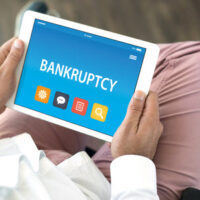What is Non-Exempt Property in a Bankruptcy?

As you may know, if you are filing for Chapter 7 bankruptcy as an individual in South Florida (as opposed to a business bankruptcy), you will need to work with a lawyer to determine which of your assets qualify as “exempt” under Florida law and which are not going to be exempt (i.e., non-exempt assets) and therefore must be liquidated. To be clear, in any personal bankruptcy case under Chapter 7, non-exempt assets will be liquidated so that creditors are able to be repaid in part or in full, and remaining eligible debts can be discharged so that the debtor is no longer liable for them. The trade-off for the debtor of having non-exempt property liquidated is that they get a fresh start financially and are no longer encumbered with unmanageable debts.
You are likely wondering: what property should I anticipate will be non-exempt under state and federal law such that I should expect it to be liquidated? A West Palm Beach bankruptcy lawyer at our firm can tell you more.
Understanding Exempt Versus Non-Exempt Property
In a personal Chapter 7 bankruptcy case, debtors in Florida can exempt many different kinds of assets identified as exempt under the Florida Statutes. All of the equity in a person’s home can be exempted, as can certain amounts of equity in a motor vehicle, a large portion of wages, certain education and health savings accounts, most retirement accounts, and much more. Exempt assets are not liquidated in a Chapter 7 case — the debtor gets to keep these assets.
Non-exempt property, however, must be liquidated. It is important to know that Florida does have a “wildcard” exemption that allows a debtor to exempt assets of their choosing of up to either $1,000 in value (if the debtor uses the homestead exemption) or up to $4,000 in value (if the debtor does not use the homestead exemption). With the wildcard exemption, debtors can keep any otherwise non-exempt assets up to the stated amount, and those assets will not be liquidated.
Common Examples of Non-Exempt Assets in Florida Bankruptcies
Each state has its own bankruptcy exemptions. Some states permit debtors to use federal exemptions instead of state exemptions in a bankruptcy case, but Florida requires debtors to use the state exemptions cited in Chapter 222 of the Florida Statutes. What assets are not identified as exemptions? In other words, what are common forms of non-exempt property that you should expect to be liquidated? Unless you exempt all or a portion of the following assets with a wildcard exemption, the following types of property do not fall into any of the explicit exemptions available to Florida debtors (in other words, the following are usually non-exempt assets):
- Tools of the trade, such as tools and books necessary to do your work (these are often exempt in other states, but not in Florida);
- Equity in a second home (the homestead exemption only applies to a primary residence);
- Second motor vehicle, or recreational vehicles like boats;
- Investments other than retirement investments and pensions; and
- High-value assets such as art, antiques, jewelry, clothing, or other property that cannot be exempt with the existing wildcard exemption in Florida.
Contact a West Palm Beach Bankruptcy Attorney Today
Do you need assistance with your bankruptcy case? One of the experienced West Palm Beach bankruptcy lawyers at Kelley, Fulton, Kaplan & Eller can speak with you today. Contact us for more information.
Sources:
law.cornell.edu/uscode/text/11
leg.state.fl.us/statutes/index.cfm?App_mode=Display_Statute&URL=0200-0299/0222/0222ContentsIndex.html



